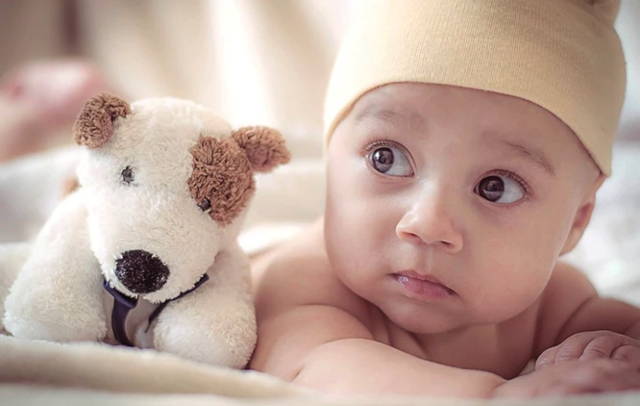No Products in the Cart

Welcoming a child into the world is an exciting milestone for your family, but the unfortunate truth of parenthood is that it can be very expensive. The US Department of Agriculture reports that the average middle-income family typically spends as much as $16,180 during a baby’s first year of life. This adds up to over a quarter of a million dollars spent on food, shelter, and necessities by the time the average American child turns 17. The good news is there are still plenty of budget hacks you can do that add up to big savings in the long run. So whether you are expecting your first child or are taking care of your bundle of joy today, here are six tips for saving money while raising your infant.
Breastfeeding is the ideal choice for infants, not just for your child's nutrition but also in terms of your finances. Breastfeeding Magazine reports that the savings you get from breastfeeding are two-fold — from not buying formula and from healthcare savings. The average family spends about $1,500 on formula for a baby's first year alone, while studies show that babies who were breastfed for at least six months save an additional $1,400 on healthcare on average. This is because there are additional health costs required by formula-fed infants, which can be avoided with breastmilk. If you’re a working mom, even buying a higher-end breastpump can be more economical than buying formula regularly. The reality, of course, is that breastfeeding doesn’t always come easily for some mothers and infants. If this is the case, Healthy Horizons recommends seeking a lactation consultant to see what the best setup can be for you and your baby.
Take advantage of free or low-cost items and services. When it comes to personal support, learn to accept help from well-meaning friends and family, who might offer old clothes, usable supplies, or a night of babysitting. And instead of spending additional money on new books and toys, go to your local park or visit your library to see if they have any free programs for infants.
No need to scour the Sunday papers – most major baby brands will thank you for signing up for their newsletters with coupons and rewards programs. These may be small 5% or 10% discounts on everyday baby necessities, but they can easily add up to hundreds of dollars in the long run. For a head start, it's a good idea to begin collecting coupons even while you are still pregnant.
When investing in baby furniture and accessories, keep an eye out for pieces that can be used in several ways over time. Whether this is a changing table that can be used as a dresser, a crib that can be converted into an activity desk, or maternity clothes that double as nursing outfits. Smart investments can help you save later on and provide great value for your money. Another worthwhile investment is to trade bibs with buying bigger shirts instead. Simply slip them on top of your infant’s clothes at meal times and wash them along with your normal laundry. Later on, your child will have an old shirt to wear for his or her messy toddler days.
Just because you’re trying to save doesn’t mean that you can’t splurge once in a while — as long as it is on the right things. For instance, don’t splurge on leather shoes that babies will outgrow pretty quickly and don’t really need. And while using cloth diapers can save you up to $300 yearly, you can still compromise with high quality diapers at night when high absorbency is more important, while using cloth diapers during the day. It’s best to choose unisex shades for clothing as well. Pick styles that are durable and can adjust to children’s sudden growth spurts. By investing in the right clothing, your child can get the most out of their clothes and even hand them down to a future brother or sister.
Tending to an infant can be a little tiring, and lactating moms need a little extra food every day to be able to take care of their child. Try the great snacks previously recommended here on the Healthy Horizons blog, and make sure to treat yourself once in a while without splurging. After all, taking care of yourself is part of ensuring that your infant gets the best care as well.